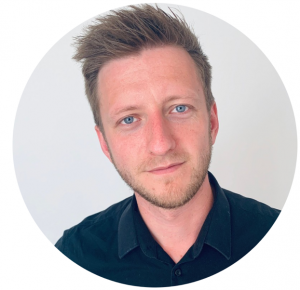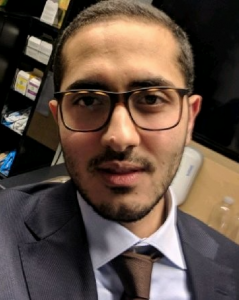Alumni Interview #November
Last month we interviewed some more alumni! We aim to post these each month so check out our news page at least once a month.

Name: Niels van Duijkeren
Employer: Robert Bosch GmbH, Corporate Research
Title: Research engineer
Country: Germany
Year of Graduation: 2014
Can you explain what Bosch corporate research does?
Bosch is a large German engineering and technology firm specialized in mobility, consumer products, industrial technology, and energy and building technology. The products are engineered, manufactured, and sold by so-called business units of Bosch. The main task of Corporate Research is to play a supporting role to these business units and pre-develop technologies for future products. Corporate Research doesn’t sell products or services by itself, its goal is to ensure Bosch can stay competitive with their products. This less-commercial setting is for instance also beneficial for collaborations with universities, the participation in research consortiums, and publishing results
What are your main responsibilities?
In my day-to-day work I do research in different projects. The goals of these projects are generally broadly defined since it is not always clear what can be achieved exactly. My responsibilities are therefore best described as organizing research tracks and executing those, together with other colleagues in a team. We do most of the research by ourselves, but also regularly supervise student projects.
What are your current projects and what is your task within these projects?
Currently, I am working in two different projects. In the first project, I focus on navigation algorithms for mobile, autonomous robots. These algorithms are applied to industrial applications for products that Bosch uses in their own factories but also sells externally. These technologies can however also end up in consumer products such as vacuum cleaners and lawn mowers because we work with several business units. The main challenge of engineering these algorithms is to make them as efficient and robust as possible, such that they perform well in virtually all situations.
In the second project I focus on methods for “teaching” robot arms to perform tasks in assembly lines and enabling them to execute these efficiently and robustly in less-structured environments.
For example, consider a robot that needs to insert a plug into a wall socket, but the position of the socket and plug change every time and the shapes slightly differ too. How can you teach this robot efficiently such that it can perform this specific task, without spending hours of programming this one specific movement for every situation? We investigate performing physical demonstrations how to do this task for several examples and then generalize this behavior. Colleagues combine this with reinforcement learning strategies to optimize the task execution over time. As these problems are rather challenging and not yet solved, we need to find original solutions for these kinds of problems.
What advice would you give a student who is considering this type of job?
Most colleagues at Corporate Research have completed a PhD before starting their job here, although this is not a strict requirement. I started a PhD right after my master thesis in which I specialized in theories and methods for nonlinear model predictive control for robotics applications. I wanted to find a job in the field of research related to my area of expertise, for which I knew the experience of doing a PhD is highly beneficial. Through the network I built during my PhD I got in touch with Bosch and eventually started this position right after finishing in 2018.
A tip I can give students who are considering working at Bosch Corporate Research or a similar position would be to do a master thesis within an area of their interest in a company. Some companies such as Bosch offer their own PhD research programs you can pursue or perhaps they need someone with your skill set right away.
Relevant courses: Control theory, digital control, optimization, filtering and identification, modelling and control of hybrid systems, nonlinear systems theory, convex optimization.
If you have any questions for Niels, please contact us via our email

Name: Omar Hassanain
Employer: Cruden B.V.
Title: Product Engineer
Country: Netherlands
Year of Graduation: December 2017
Where did you do your master thesis and who was your supervisor?
TNO Helmond | Integrated Vehicle Safety Department – Supervisor : Prof.dr.ir. N. Nathan van de Wouw
What was the title of your master thesis project?
String-stable automated steering in cooperative driving applications.
The automation of vehicle steering is necessary in order to guarantee safe vehicle following in short-distance vehicle following applications. A necessary (safety) requirement for such automation strategy is lateral string stability. In my work a design for cooperative lateral controllers is proposed that yields a laterally string-stable platoon. The dynamics of the vehicles in the platoon are described using the dynamic bicycle model. The proposed controller is designed using the H-inf control framework which achieves firstly, lateral string stability and, secondly, path-following, where the path is induced by the preceding vehicle in the platoon. Such control design approach is taken since it allows for the inclusion of the string-stability requirement as an a-priori design specification. The properties of the designed controller are evaluated by means of frequency domain analysis and numerical simulations and compared with a benchmark controller.
Did you have a favourite S&C course?
I enjoyed them all, but control theory was the one I liked the most.
What was the most difficult S&C course in your experience?
For me that was Filtering and system identification.
Did you have a favourite professor?
My favourite professor was Jan-Willem van Wingerden. Although I did not mention Robust Control as my favourite subject, I did enjoy his lectures quite a bit. He was always available after classes and during the breaks for discussions and/or questions. And when I reached out to him to help me with my thesis he did not hesitate to offer his help.
What does a regular workday look like for you?
Well I started in march 2018 as a Models and Systems development Engineer. My duties included developing of (Cruden’s own) vehicle models (kinematics and dynamics included) and adas (advanced driver-assistance systems) control systems, for the use on driving simulators (Driver in the loop simulators). These vehicle models needed to be fast enough to run in real-time (1000Hz) and at the same time be accurate to represent a real car’s dynamics. The Matlab/Simulink environment was the place where I did most of my work for that. The same was true for the ADAS systems.
As time went by I started doing a lot of project related work for our customers, which includes things like integration of vehicle models developed in third-party software packages such as CarMaker, ADAMS, dSPACE etc. I have also done some on-site consultancy work for vehicle dynamics development and motion tuning. But I have also done some ad-hoc things such as extracting camera motion information from 2d video footage, in order to generate a motion profile that can be replicated on our motion bases.
In the meantime I had developed an interest in Software development (C++/C etc.), and wanted to pursue a career in it. So almost half a year ago I started my current (transitional) role in the development team as a product engineer. Where it is my task to develop frameworks and applications to test and quantify the quality of our product. So my weeks range from conceptualizing ideas and tests to actually writing them out in code. I have also worked on setting up testing pipelines, and building (web) applications to publish the results.
I have also had the pleasure of supervising students’ internships and helping out where I can with graduation projects.
Is the study material still relevant to your daily occupations?
Quite a lot, especially the fundamentals. Often times when I was actively developing or debugging
vehicle models and adas. I would try to simplify the models and controllers in order to get a grip on
what’s happening. I have drawn a tons of root locus, and bode diagrams to analyze system stability and
responses.
For my vehicle modelling work I benefited the most from the multi-body dynamics course. Most, if not all
of the content I used on a daily basis. An elective I would recommend everyone to take.
I have also done some system identification work for our motion bases, here, a lot of the theory from the
filtering and identification, and optimization courses was relevant. To this day I very often have to go
back to my linear algebra books.
In my current role however, I guess the systems part of “Systems and Control” is more relevant.
Have you worked on an interesting project lately?
My most recent project I worked on was an integration of a state-of the art automotive simulator in a
virtual reality cave with stereoscopic 3d projection.
Do you have any advice for students pursuing a career in your field of work?
I know this sounds cheesy, but just do what you enjoy doing. That’s the reason I chose mechanical engineering in the first place, and also the reason I decided to study Control Engineering.
Did you do any extra-curricular activities? If so, did these aid in achieving your current title?
Not really, but a lot of my colleagues did Formula Student Team Delft.
If you have any questions for Omar, you can contact him via Linkedin:
Omar Hassanain

